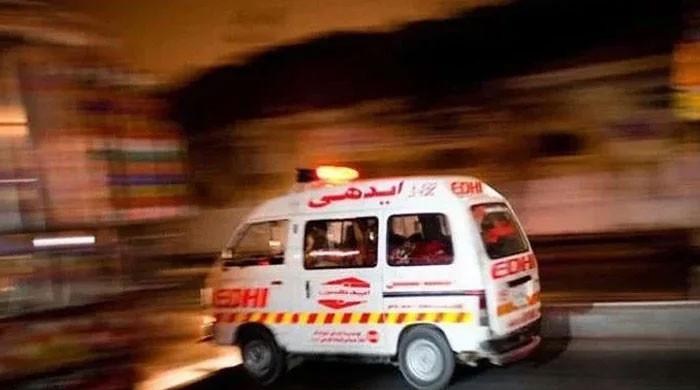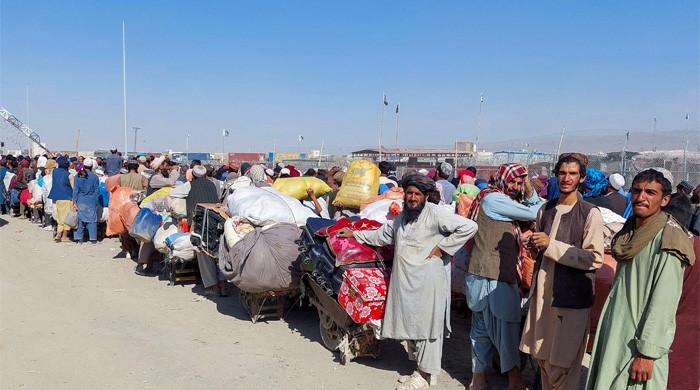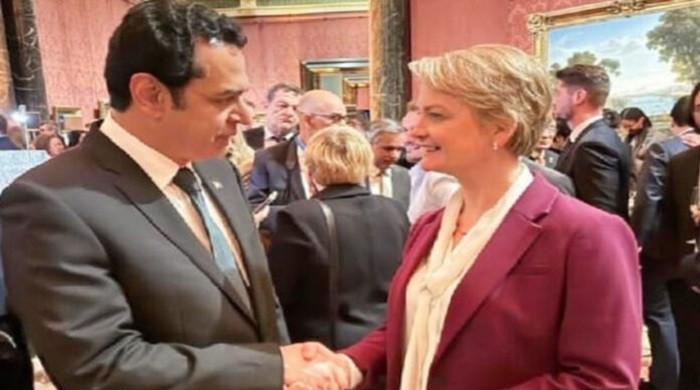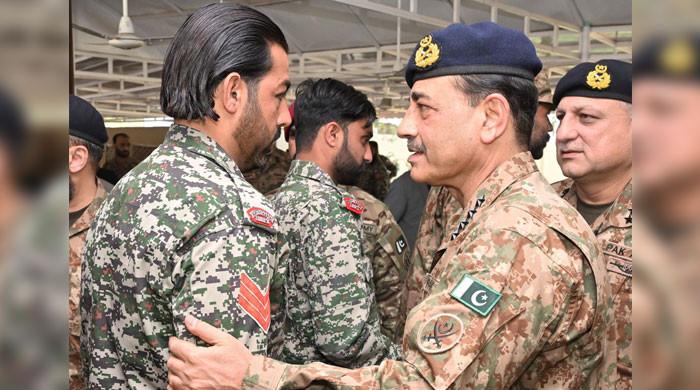Startling revelations link terrorism in interior Sindh to Balochistan
Failed suicide bomber in Shikarpur entered Pakistan through Nangarhar and stayed in Balohistan's Khuzdar district
September 16, 2016
KARACHI: While citizens were celebrating Eid-ul-Azha on Tuesday, terrorists had planned to carry out a bloodbath in Shikarpur. Sindh police officers not only put their lives at risk to foil a major terror bid, they also succeeded in capturing a would-be suicide-bomber alive.
However, what is increasingly alarming is that incidents of sectarian terrorism in Sindh in the past few years have repeatedly been found to be linked to Baloch militants.
During investigation, failed suicide bomber Usman said that, along with his accomplices, he entered Pakistan in the month of Ramazan through the Afghan province of Nangharhar. He said that the terrorists then spent about three months in Wadh area of Balochistan's Khuzdar district.
Security officials claim Usman and his accomplices were guests of Moaaz and Arif at a compound which was provided by Shafeeq Mengal.
This is not the first terrorist incident which traces its links to sectarian terrorists in Balochistan. The terrorist attack which claimed 28 lives in Jacobabad on 9th Muharram last year was one such incident.
In a press conference on February 11, the Deputy Inspector-General of Larkana Range had claimed that the attack was planned at the Madrassa Hussainia Ibn-e-Ameer Muyavia in Quetta. Eight terrorists belonging to a banned outfit were said to be involved in the attack. Police have so far arrested two suspects. The mastermind of the attack was the chief of the Lashkar-e-Jhangvi Pakistan Ameer Asif Chotu.
Over 60 people lost their lives on January 31, 2015 during Friday prayers at a mosque in Shikarpur. The mastermind of this attack was also said to be the Lashkar-e-Jhangvi chief Ameer Asif Chotu, who was facilitated by a man named Abdul Hafeez Brohi.
Police has registered the case of the Eidul Azha terrorist attack in Shikarpur against failed suicide bomber Usman, two of his accomplices Umar and Abdul Hafeez Brohi, and two unidentified persons.
Abdul Hafeez Brohi is said to be a key member of the banned Lashkar-e-Jhangvi Balochistan and belongs to Mastung area of Balochistan but was residing near Khanpur for some time.
A brother of Abdul Hafeez Brohi, Pir Baksh, is said to have attempted the first suicide attack in interior Sindh -- a failed attack on an Ashura procession on December 19, 2010. Baksh was gunned down by police before he could detonate his explosives.
Baksh could not been immediately identified. But a few years later during investigation into funding of terrorists, clues led police to a woman who received funds for the attacks. The woman was identified as Baksh's wife, who was sent Rs200,000.
Further investigation revealed that Pir Baksh was the brother of Abdul Hafeez Brohi, who had close links to LeJ chief Asif Chotu. Security sources calim Chotu is in direct contact with Shafeeq Mengal.
There are reports that security agencies arrested Asif Chotu from Dera Ghazi Khan in February this year.
Shafeeq Mengal is a resident of Waddh and the leader of a Baloch militant group. Security sources claim Mengal facilitates LeJ terrorists and provides them sanctuary.
The startling fact is that Shafeeq is the son of former state minister for petroleum Naseer Mengal. Sources say Mengal was previously targeting Baloch separatist groups and joined hands with the banned Lashkar-e-Jhangvi during this time.
The case of the 2014 killing of eight Levies personnel in Waddh area has been registered against the son of the former state minister.
In the JIT report of the Safoora bus carnage in Karachi, key suspect Tahir Minhas was said to have had the help of Ramzi Yousaf's brother, Haji Sahib, who sought refuge in Khuzdar with Shafeeq Mengal. Minhas was also said to have traveled to Khuzdar to meet with Haji Sahib.











